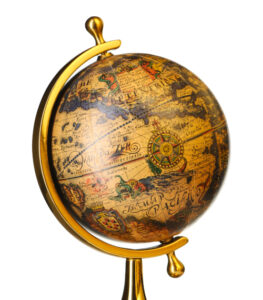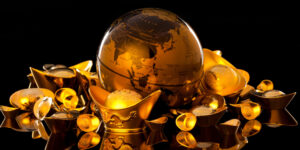
There’s something quietly unshakable about gold. Not just because it doesn’t rust or tarnish, not because it lasts longer than empires or bank accounts, but because, no matter where you set foot on this planet, from the icy crevices of Antarctica to the dust-stained fields outside Johannesburg, it’s there. Gold is found on every continent. It’s the thread that ties together cities, jungles, deserts, and oceans, hidden beneath rock and ice, stitched into the earth like some ancient, stubborn secret.
In South Africa, where gold built skylines and broke backs, it’s easy to forget that it isn’t just a local story. The same quiet gleam has been pulled from rivers in Brazil, chipped from cliffs in Mongolia, swept from Alaskan streams, and even scratched from frozen ground in places no human would willingly linger. In every corner of the world, someone is digging, panning, or blasting rock in the hope of pulling a handful of that same ancient metal into daylight. It’s almost unnerving to think about how consistent it is. Gold isn’t some regional quirk. It’s universal.
But gold’s presence everywhere doesn’t make it any less rare. That’s the trick of it. It exists, but always just out of easy reach. You won’t stumble across nuggets the size of your fist in a city park. You won’t find flakes of it floating in the surf at Camps Bay. Gold hides in the places that don’t give up their secrets easily, deep underground, frozen into rock veins, scattered across mountain ranges that swallow up entire expeditions. That’s part of its myth, part of what makes it more than just metal. Gold is work. Gold is chase.
Ask miners in Johannesburg, and they’ll tell you gold lives in the rock like a buried ghost. Quiet, waiting, patient. In the jungles of Colombia, the story’s the same, rivers running thin but always promising something just beneath the mud. And even in Antarctica, frozen and brutal, gold has been found locked under layers of ice and rock, as if reminding everyone that no place it can’t reach.
What makes this global spread so fascinating isn’t just geography, it’s how human beings respond to it. No matter the country, no matter the language or religion, gold pulls the same stories out of people. There are always whispers of sudden wealth, of lives turned upside down, of betrayals and partnerships formed and broken in pursuit of something so small and so bright. It’s like a universal language, one that doesn’t need translation, gold means possibility. It means escape. It means legacy.
 That edge, half beauty, half danger, is what keeps gold’s story cinematic. It’s not like copper or iron, dug up in vast anonymous quantities. Gold’s presence always feels personal. A single ring. A single chain. A single bar locked away in a vault beneath Johannesburg or stashed quietly in a desert bunker somewhere in Nevada. The fact that it’s everywhere doesn’t make it any less powerful. If anything, it adds weight to it. You can walk the streets of Tokyo or Lagos or Cape Town and know that beneath your feet, somewhere deep down, there’s gold just sitting there, waiting.
That edge, half beauty, half danger, is what keeps gold’s story cinematic. It’s not like copper or iron, dug up in vast anonymous quantities. Gold’s presence always feels personal. A single ring. A single chain. A single bar locked away in a vault beneath Johannesburg or stashed quietly in a desert bunker somewhere in Nevada. The fact that it’s everywhere doesn’t make it any less powerful. If anything, it adds weight to it. You can walk the streets of Tokyo or Lagos or Cape Town and know that beneath your feet, somewhere deep down, there’s gold just sitting there, waiting.
It’s been like this for centuries. From Egyptian tombs layered with golden relics to South African mine shafts stretching deeper than light can follow, gold has never belonged to just one place. It’s a world thing. And yet, each place tells its own version of the story. In South Africa, it’s about industry and grit, about history stained with both pride and blood. In Australia, it’s bush prospectors and wild frontier towns. In Ghana, gold runs like a quiet pulse through markets and trade routes older than maps.
But maybe the most remarkable thing is that it never stops. People still look for it. Still risk everything for it. Even now, with satellites and sensors and global economies built on digital code, there’s still a man somewhere standing knee-deep in a cold river, sifting gravel through a rusted pan, eyes sharp for that one impossible glimmer.
Gold doesn’t care about borders. It doesn’t care about politics or currency values. It just sits, locked in the earth, waiting for someone to come looking. And people always do. That’s the quiet fact beneath every gold ring, every necklace, every carefully guarded bar in a private vault. Someone, somewhere, dug that piece of light out of the dark.
So yes, gold is found on every continent. It’s universal. It’s eternal. But more than that, it’s a reminder that some things, no matter how rare, are always just beneath the surface. Hidden, waiting, shaping lives one glimmer at a time.



